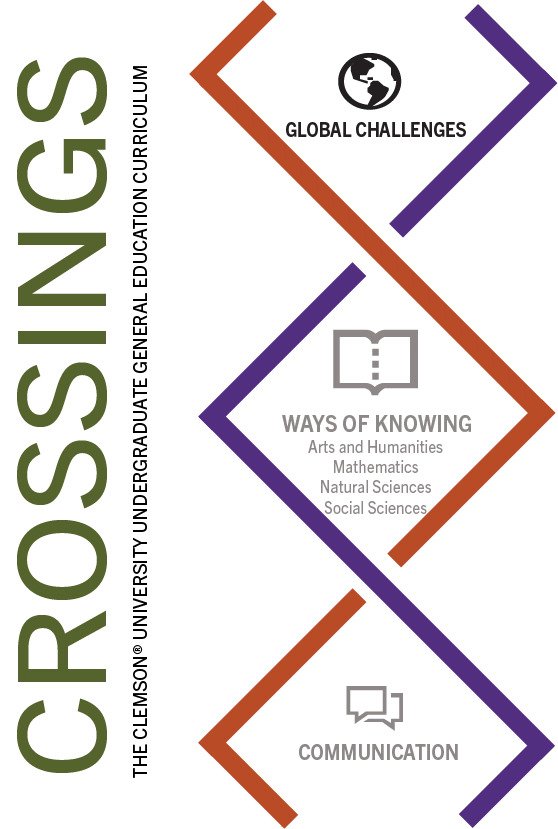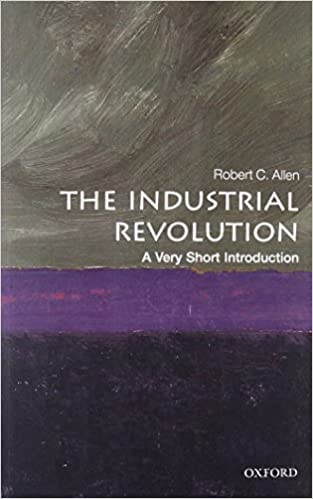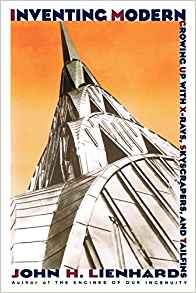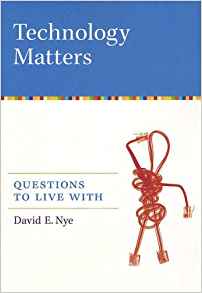
Instructor: Dr. Pamela E. Mack,
Department of History
Contact information: use the email system build into Canvas (if
I am available that is usually the fastest way to reach me, if
I don't reply within 24 hours please re-send)
direct email: pammack@clemson.edu
(no g.)
I'm a morning
person--I usually turn my computer off around 8:30 pm
preferred form of address: Prof. Mack or
Dr. Mack, pronouns: she/her/hers
student drop in
hours MWF 8-9:30 and 11:20-12 in Hardin 014 or by Zoom (email
for link for Zoom) or by appointment
I don't have a phone in my office but you can call the history
department at 854-656-3153
Teaching assistant: Shelby
Sibert <ssibert@g.clemson.edu>,
he/him, student drop in hours Friday after class or
11:15-noon in Hardin 001
Course Goals:
This course uses examples from
history to teach you to analyze the interaction of
science and technology with society and understand
how we can better manage the challenges technology
poses for our future. The goal is to make you a
better citizen, able to make good choices (both as
a consumer and as a voter) about what technologies
we want in the future. We see in the world around
us the same themes that this course focuses on:
"Even the most effective technofixes are dependent
on the social and political environment in which
they're deployed." (source)
Learning Outcomes:
| General learning outcomes |
How we will approach that
in this course |
| Students will use social science concepts and evidence to explain human actions or behaviors in the past, the present, and/or the future | Students will demonstrate how
historians with a particular perspective explain the
causes and consequences of human actions |
| Students will demonstrate an understanding of issues created by the complex interactions among science, technology, and society | Students will assess how
social forces shape the development of technology and how
technology can shape society |
| Students
will demonstrate critical thinking through analysis of
global challenges |
Students will apply concepts
from the history of technology to analyze major challenges
in how we use new technologies with a focus on how we can
increase the benefits and reduce the harm from developing
technologies |
| Students will evaluate how
varying perspectives influence global challenges |
Students will compare the
perspectives of different groups about developing
technologies to understand that we have choices about who
are the winners and losers |

Using technology in
this course:
|
Learning in an Uncertain World:
We learn best in
community:
Use the course structure:
|
It
is cheating to cut and paste or otherwise copy portions of a
argument paper, exam, or discussion board posting from a
book, web site, or from the online class notes, unless you
quote and give the source. Changing a few words is
not sufficient to make the material your own. It is poor
writing for more than about 20% of your paper to consist of
quotes. In
most cases when you use specific material from any source
you should paraphrase: cite the source and put the ideas into you own
words (generally no more than 5 consecutive words
should match the source but if the words are mostly the same
it could still be plagiarism even if there aren't 5
consecutive words).
| Robert C. Allen, The Industrial Revolution: A Very Short Introduction | John H. Lienhard, Inventing Modern: Growing Up with X-rays, Skyscrapers, and Tailfins | David E. Nye, Technology Matters : Questions to Live With |
 |
 |
 |
II. Class Schedule for Hist 1220:
| date |
reading for class, usually
in Perusall |
in class |
work due |
| Aug 24 |
syllabus |
introduction |
|
| Aug 26 |
meet in classroom then go outside in groups |
group assignment due 8 pm |
|
| Aug 29 |
Course Philosophy | What is Technology? | |
| Aug 31 |
Allen
ch. 1 |
where does industrialization fit? | reading assignment due--Canvas/Perusall |
| Sept. 2 |
current issues/group work | ||
| Sept. 5 |
Allen
ch. 2 |
the
pre-industrial revolution |
reading assignment due--Canvas/Perusall |
| Sept 7 |
Allen ch. 3 |
work |
reading assignment due--Canvas/Perusall |
| Sept 9 |
group work |
||
| Sept 12 |
Allen ch. 4 |
technology |
reading assignment due--Canvas/Perusall |
| Sept 14 |
Allen ch. 5 |
energy |
reading assignment due--Canvas/Perusall |
| Sept 16 |
essay writing workshop |
||
| Sept 19 |
Allen ch. 6 |
impact |
reading assignment due--Canvas/Perusall |
| Sept 21 |
the
industrial revolution in the United States |
||
| Sept 23 |
essay writing/help session on Zoom |
Essay 1 due |
|
| Sept 26 |
Lienhard preface and ch. 1 |
Manifest Destiny | reading assignment due--Canvas/Perusall |
| Sept 28 | Lienhard 3 | Forces Totally New | reading assignment due--Canvas/Perusall |
| Sept 30 |
Group work: World Views |
group assignment due |
|
| Oct. 3 |
Lienhard 4-5 | Genius and Core and Fringe | reading assignment due--Canvas/Perusall |
| Oct. 5 |
Lienhard 6 |
High Rises | reading assignment due--Canvas/Perusall |
| Oct. 7 |
|
current issues: Future
Shock |
|
| Oct. 10 |
Lienhard 7 | The City | reading assignment due--Canvas/Perusall |
| Oct. 12 |
Lienhard 8 |
Automobile | reading assignment due--Canvas/Perusall |
| Oct. 14 |
Group work: |
group assignment due |
|
| Oct. 17 |
Lienhard 9 |
On the Road | reading assignment due--Canvas/Perusall |
| Oct. 19 |
Lienard 10-11 |
Aviation | reading assignment due--Canvas/Perusall |
| Oct. 21 |
current issues/group work | group assignment due |
|
| Oct. 24 |
Lienhard 12-13 |
A Boy's Life and Invention | reading assignment due--Canvas/Perusall |
| Oct. 26 |
Lienhard 14-15 |
War and Fifties | reading assignment due--Canvas/Perusall |
| Oct. 28 |
current issues/group work | group assignment due |
|
| Oct. 31 |
Lienhard 16 |
After Modern | reading assignment due--Canvas/Perusall |
| Nov. 2 |
Postmodern Technology |
||
| Nov. 4 |
essay workshop | essay 2 due |
|
| Nov. 7 |
Fall Break |
||
| Nov. 9 |
Nye ch. 1 |
Defining Technology | reading assignment due--Canvas/Perusall |
| Nov. 11 |
Nye ch. 2-3 |
The argument
against determinism (lecture plus
discussion) |
reading assignment due--Canvas/Perusall |
| Nov. 14 |
Nye ch. 5 |
Freedom and current issues | reading assignment due--Canvas/Perusall |
| Nov. 16 |
Nye ch. 6 |
Technology and the environment | reading assignment due--Canvas/Perusall |
| Nov. 18 |
group work |
group assignment due |
|
| Nov. 21 |
Nye ch. 7 |
Work | reading assignment due--Canvas/Perusall |
| Nov. 22-24 |
Thanksgiving Break |
||
| Nov. 28 |
Nye ch. 8 | Who selects technologies? | reading assignment due--Canvas/Perusall |
| Nov. 30 |
Nye ch. 9 | Risk | reading assignment due--Canvas/Perusall |
| Dec. 2 |
paper writing workshop |
Nye paper due |
|
| Dec. 5 |
Nye ch. 10 |
Knowledge | reading assignment due--Canvas/Perusall |
| Dec. 7 |
Nye ch. 11 |
Choosing our future | reading assignment due--Canvas/Perusall |
| Dec. 9 |
Today's issues |
group assignment due |
|
| Dec. 13 |
Takehome final reflection due |
University Policies and
Student support, syllabus part two 2022-23
The Academic
Success Center (ASC) offers a variety of free
learning and success services for all undergraduate students
that are designed to equip students with strategies and
resources they can use to become a more confident, independent
and skillful learner.
· Peer Tutoring – students can expect a 1:1
meeting with a trained undergraduate peer leader (who made an A
or B in the course and was recommended by a faculty member)
during which the student can share specific questions they have
about course content with the tutor focused on helping the
student, through questioning techniques and identification of
helpful learning strategies, master course concepts. Tutors do
not help with homework or other class assignments. (Linked to a
course)
· Peer-Assisted Learning (PAL) –
students can expect collaborative and active group learning and
study sessions focused on mastery of course content and learning
strategies that is facilitated by a trained undergraduate peer
leader (who made an A or B in the course and was recommended by
a faculty member). PAL leaders do not help with homework or
other class assignments. (Linked to a course)
· Academic Coaching – students can
expect a 1:1 meeting with a trained professional academic coach
during which the coach helps students see themselves, their
skills, and their study habits from a fresh perspective through
one-on-one sessions focused on learning and personal success
strategies.
· Success Strategy Workshops – students can
expect 30 - 45-minute workshops on college success skills, time
management and organizational skills, test-taking strategies,
study strategies, finals preparation, life skills, and academic
resources.
The Class of
1956 Academic Success Center building is in the center of campus
adjacent to Cooper Library and the Watt Family Innovation
Center.
The Academic Success Center
exists to inspire success in every student who participates in
our programs and services. Celebrating and honoring the
diversity of our students, faculty, and staff is at the core of
inspiring success and a sense of belonging. The diversity of our
Clemson community comes in many forms, but inclusion comes in
only one form – when each member of our community experiences a
real sense of belonging. We, the ASC staff, are committed
to creating a welcoming and inclusive experience at the Center.
We affirm that our goal of creating and delivering welcoming,
inclusive, and equitable student learning experiences at the
Center requires our active and ongoing commitment to listening
and learning through engagement in professional development
opportunities and confronting and dismantling
inequalities. We acknowledge that this will be an ongoing
work in progress and pledge to strive for continuous
improvement.
Academic advising is an ongoing
educational process that connects the student to the
University. Academic advising supports the University's
mission of preparing the student for learning beyond the
confines of the academy. Academic advisors represent and
interpret University policies and procedures to the student
and help the student navigate the academic and organizational
paths of the institution.
Do you need library sources
but don't know where to start? Are you asking your students to
search for a book, article, or data to support their argument?
Not sure whether they know how to cite a source properly in
their bibliography? Tell them to ask a librarian! Help is available in
person at each of our locations: Cooper Library, Gunnin
Architecture Library, and the Education Media Center.
You can also chat with a librarian live from our website, by
phone at 864.656.1557, or text 864.762.4884.
Extended
research assistance with librarians who specialize in subject
areas is also available by appointment. A list of librarians and
their areas of expertise are listed on the subject librarians page. Check the
Library’s Ask Us page for details. For assistance with
digital projects, the Adobe Digital Studio is located on the 5th
floor and is staffed to support the needs of you and your
students. You can
download Adobe Creative Cloud for free. The Scholar’s Lab is a new space that provides support for
data visualization, data analysis, and digital research
methods. Check out the Library’s web page for upcoming workshops and other events.
If you are having hardware or
software problems, CCIT's Service Desk may be able to help you.
Contact them by emailing ITHELP@clemson.edu, calling or texting (864) 656-3494, or
starting a live chat at ccit.clemson.edu. The help desk is
located in Cooper Library.
The Graduate School maintains a collection of grad student resources applicable to graduate students for professional
development, governance, the handbook, and thesis/dissertation
resources). It has resources regarding education, student life,
and health and safety as well.
U.S. local elections are
facilitated through state and county municipalities. Students
attending college may register to vote at their local campus
addresses or choose to remain registered or register at their
permanent or home address. The nonpartisan Campus Vote Project
has compiled information for all students on state-by-state
voter registration: https://www.campusvoteproject.org/state-student-voting-guides. [BGT1]
The national midterm
elections will be held on November 8. Voter registration dates
differ by states, but the registration deadlines in South
Carolina are October 7 (in person0, October 9 (online), and
October 11 (postmarked by mail).
Faculty and instructors of
record may wish to inform students of these deadlines and may
wish to incorporate nonpartisan voter education assignments into
their courses. The ClemsonVotes
coalition[BGT2]
will be providing ideas and resources for faculty and instructors
via the Clemson Teaching Listserv throughout the semester.
The Michelin® Career Center, in the Center for Career and Professional
Development, assists undergraduate and graduate students in
selecting appropriate fields of study, learning effective job
searching strategies, and making connections with employers.
Career counselors are available to meet with students to explore
career or educational options, develop résumés and cover
letters, hone interviewing techniques, conduct searches for
internships and full-time jobs, and ready themselves for
interviewing with employers. In addition, students may utilize
ClemsonJobLink, the Career Center’s on-line recruiting system,
to view part-time jobs, internships, and full-time job postings
and to sign up for on-campus interviews. The Center’s goal is
to endow students with the skills and tools to find part-time
jobs and internships while in school, as well as full-time
jobs following graduation. Other information can be obtained
from the Career Center’s website or by calling
864-656-6000.
This program brings together students and employers
to facilitate academically enriching and mutually beneficial
work experiences. This program offers on-campus, off-campus and
international internship options. Students may participate in
either part-time or full-time internships.
The University Professional Internship and Co-op
(UPIC) Program offers students on-campus professional learning
experiences. Students have the opportunity to work with Clemson
faculty and staff on Clemson's main campus, as well as other
sites across the state, while receiving an academic internship
notation on their transcripts. Enrollment in the appropriate INT
course and payment of the corresponding fee is a requirement of
the program (e.g. INT 1510). In order to be eligible for the
program, a student must have completed at least one full
semester at Clemson University and be an enrolled and
matriculating undergraduate student in good standing. Available
internships are typically listed in ClemsonJobLink halfway
through the semester prior to the experience. Additional
information is available at http://career.clemson.edu or by calling the program office at 864-656-0282.
The Cooperative Education
Program (or Co-op Program) is a rigorous engaged-learning
program designed to provide students with the opportunity to
learn under a mentor in their field of study. Companies
partner with the program to host the co-op student for two,
three or more rotations and this in-depth learning experience
becomes an integral part of the student’s education. The
co-op student’s experience is monitored and evaluated by the
faculty and academic staff of the Co-op Program. Co-op
students are paid by the host company. Students enroll in the
program and begin the matching process at the beginning of the
semester. For more information, contact the program office
at 864-656-3150 and speak with a co-op advisor.
The Registrar's office provides information about important
deadlines, degree and
program requirements, and other key information, including use
of iROAR to add, drop, or withdraw from courses.
Clemson University values the
diversity of our student body as a strength and a critical
component of our dynamic
community. Students with disabilities or temporary
injuries/conditions may require accommodations due to barriers in the
structure of facilities, course design, technology used for
curricular purposes, or other
campus resources. Students who experience a barrier to
full access to this class should let the instructor know and
make an appointment to meet with a staff member in Student
Accessibility Services as soon as possible. You can make an
appointment by calling 864-656-6848, by emailing studentaccess@lists.clemson.edu, or by visiting Suite 239 in the Academic Success Center building. Appointments are strongly encouraged – drop-ins will be seen, if at all
possible, but there could be a significant wait due to scheduled
appointments. Students
who have accommodations are strongly encouraged to request,
obtain and send these to their instructors through the AIM portal as early in the
semester as possible so that accommodations can be made in a
timely manner. It is the student’s responsibility to follow this
process each semester.
You can access further
information at the Student Accessibility website. Other information is
at the university’s Accessibility Portal.
Student Health Services, locally known as “Redfern” Health, strengthens
Clemson University by providing quality medical and mental
health care and the health, safety and well-being of the campus
community. Student Health Services strives to be an innovative
health care system providing integrated quality services that
are responsive to the needs of the University community.
For information on who to contact for help in a
crisis situation, visit the Student Health contact page and the emergency/crisis page for getting help.
At Counseling and Psychological Services(CAPS), you are encouraged to
be an active participant in your medical and mental health
care. Which service is the right one for you hinges on your
individual need, and CAPS will help you figure that out.
CAPS is committed to educating students, as well as
offering outreach services to faculty and staff members in order
to improve the quality of their interactions with students and
to promote a healthy work environment.
Clemson
University’s Writing Lab offers free one-on-one writing support
for undergraduate and graduate students. Available appointments
include in-person and virtual options. Students can seek support
at any stage of the writing process, from brainstorming to final
revisions. Arrangements can be made for group appointments.
Visit the Writing Lab’s website for more
information about their services or to make an appointment.
Please note that the Writing Lab is now located on Cooper
Library’s third floor.
The Paw Pantry is an on-campus food
pantry and resource center available to Clemson University
students free of charge, no questions asked. Non-perishable
foods, school supplies, hygienic supplies, and household items
are available. Paw Pantry is currently located at Sirrine Hall,
Room 233. The hours of operation can be found here.
If interested in utilizing the pantry, donating, or volunteering
please visit our website,
email pawpantry@clemson.edu
or follow on Instagram @cupawpantry. Contact person is Kate Radford
at 864-656-2535.
Clemson has developed an Academic Continuity Plan
for academic operations. Should university administration
officially determine that the physical classroom facility is not
available to conduct classes, class will be conducted in a
virtual (online) form. The university issues official disruption
notifications through email, website, text notification and
Social Media. When notified, use one of the following links to
navigate to Clemson Canvas where you will find important
information about how we will conduct class:
Course activities will occur through the Canvas
course.
As members of the Clemson University community, we
have inherited Thomas Green Clemson's vision of this institution
as a "high seminary of learning." Fundamental to this vision is
a mutual commitment to truthfulness, honor, and responsibility,
without which we cannot earn the trust and respect of others.
Furthermore, we recognize that academic dishonesty detracts from
the value of a Clemson degree. Therefore, we shall not tolerate
lying, cheating, or stealing in any form.
All infractions of academic dishonesty by
undergraduates must be reported to Undergraduate Studies for
resolution through that office. In cases of plagiarism
instructors may use the Plagiarism Resolution Form.
See the Undergraduate Academic Integrity Policy website for additional information and the current catalogue for the policy.
For graduate students, see the current graduate student handbook for all policies.
Undergraduate students are
advised to contact the Ombuds' Office prior to filing an
academic grievance. If the undergraduate academic ombudsman
agrees that a grievable issue has occurred, students can contact
Undergraduate Studies (656-3022) for assistance filing official
paperwork within 30 days of the semester following the awarding
of a disputed grade.
Graduate students follow the
Graduate Student Handbook (per the
catalogue, “grievances must be filed with the Graduate School within 60
days of the alleged act.”)
Clemson
University aspires to create a diverse community that welcomes
people of different races, cultures, ages, genders, sexual
orientation, religions, socioeconomic levels, political
perspectives, abilities, opinions, values and experiences.
The Clemson University Title IX statement: Clemson
University is committed to a policy of equal opportunity for all
persons and does not discriminate on the basis of race,
color, religion, sex, sexual orientation, gender, pregnancy,
national origin, age, disability, veteran’s status,
genetic information or protected activity in employment,
educational programs and activities, admissions and financial
aid. This includes a
prohibition against sexual harassment and sexual violence as mandated by Title IX of
the Education Amendments of 1972. This Title IX policy is located on the Access and
Equity website. Ms.
Alesia Smith is the Clemson University
Title IX Coordinator, and the Executive Director of Equity
Compliance. Her office is located at 223 Brackett Hall,
864-656-0620. Remember, email
is not a fully secured method of communication and should not be
used to discuss Title IX issues.
Emergency procedures have been posted in all
buildings and on all elevators. Students should be reminded to
review these procedures for their own safety. All students and
employees should be familiar with guidelines from the Clemson University Police Department. Visit here for information about safety.
Clemson University is committed to providing a safe
campus environment for students, faculty, staff, and visitors.
As members of the community, we encourage you to take the
following actions to be better prepared in case of an emergency:
1. Ensure you are signed up for emergency alerts
2. Download the Rave Guardian app to your phone (https://www.clemson.edu/cusafety/cupd/rave-guardian/)
3. Learn what you can do to prepare yourself in the event of an active threat (http://www.clemson.edu/cusafety/EmergencyManagement/)
Appropriate online academic
conduct means maintaining a safe learning environment based on
mutual respect and civility. All participants in Clemson courses
are expected to behave professionally by adhering to standards
of conduct, such as:
o Never transmit or promote content known to be
illegal or protected by copyright.
o Never use harassing, threatening, embarrassing, or
abusive language or actions.
o Respect other people's privacy as well as your own.
Online
interactions that fail to meet standards of conduct may result
in being blocked from online discussions, receiving a grade
penalty, or being dismissed from
the course. Such misconduct in the online environment may also
be reported to officials for appropriate action in accordance
with University policy. If you ever encounter inappropriate
content in your course, please
contact Matthew Briggs and the instructor with your concerns.
Please
consult the Clemson research policies. If a course
includes the use of animals, IUCAC regulations must be followed. If a course
involves any human subjects research, this research will comply
with campus IRB regulations. This includes research of the course itself, which, while it may fall under one of
the exempt categories, needs IRB review.